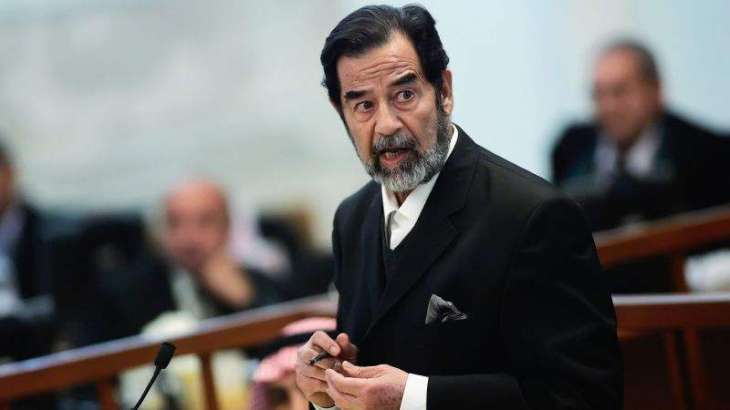The Iraqi side exerted strong pressure on those who took part in the trial of former Iraqi President Saddam Hussein, while the United States also attempted to steer the course of the process, though more indirectly, the first chief judge in Saddam's trial, Rizgar Mohammed Amin, told Sputnik
BAGHDAD (Pakistan Point News / Sputnik - 30th December, 2021) The Iraqi side exerted strong pressure on those who took part in the trial of former Iraqi President Saddam Hussein, while the United States also attempted to steer the course of the process, though more indirectly, the first chief judge in Saddam's trial, Rizgar Mohammed Amin, told Sputnik.
"Direct pressure came from the Iraqi authorities. The US had kind of ... lawyers who were with us, they were from the American embassy. American law to some extent respects the domestic judicial system, and there is a kind of observance of judicial legislation and respect for the judge, but (during the trial in Iraq) there were other tendencies... That is, there was pressure from both sides, but from the local side it was stronger and more direct," Amin, who had to step down as chief judge due to government interference in January 2006, said.
The former judge noted that there was pressure to prohibit the defendant from speaking freely and from being present at the trial, and efforts were made to prevent his defense lawyers from participating in the hearings.
"One of the defense lawyers was killed on the second day of the trial. His name was Saadoun Antar al-Janabi. Could there be more pressure than killing a lawyer? Another lawyer was abducted in front of the building where the trial was taking place and also killed. It was a challenge," Amin said.
The judge also said that the trial had been under pressure from the very first days.
"Foreign lawyers were allowed to visit the court. However, after the first hearings, or even after the first hearing, interference in the course of the court session began with pressure from parties, regardless of the ruling at that time or other blocs and individuals," the judge said.
The court was established by the decision of the Iraqi Governing Council, which in turn was set up at the order of the former US Executive Secretary Paul Bremer, according to Amin.
Saddam Hussein managed to avoid capture for six months after the United States invaded Iraq on the pretext of searching for weapons of mass destruction in 2003. In December of that year, he was finally arrested near his hometown of Tikrit.
The first hearing of the special tribunal took place in July 2004. The court found Saddam Hussein guilty of crimes against humanity and sentenced him to death by hanging on November 5, 2006. Hussein was executed on December 30, 2006.




